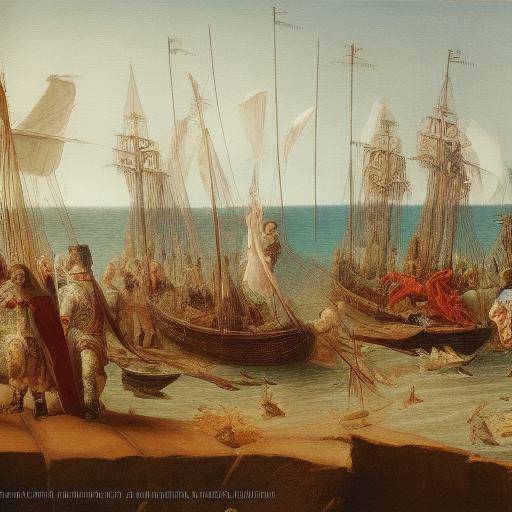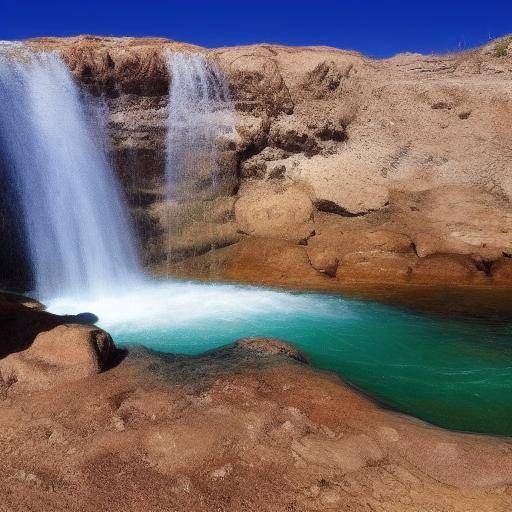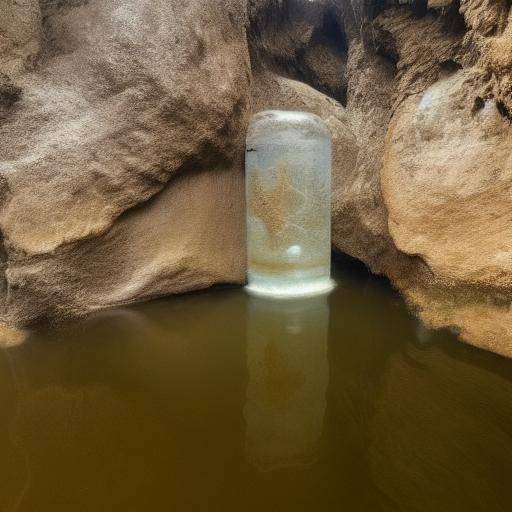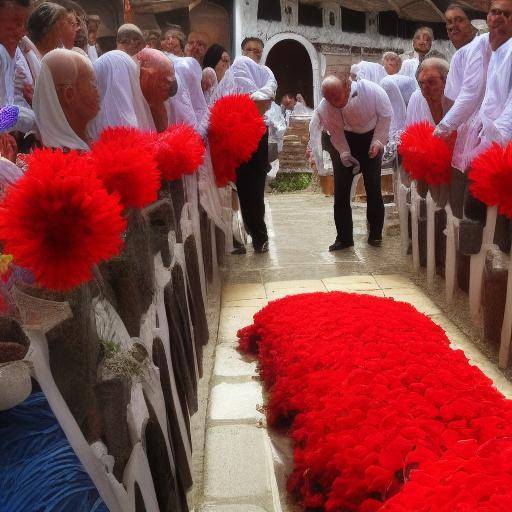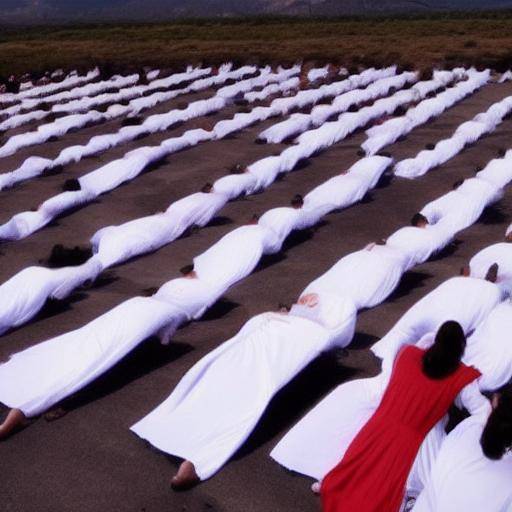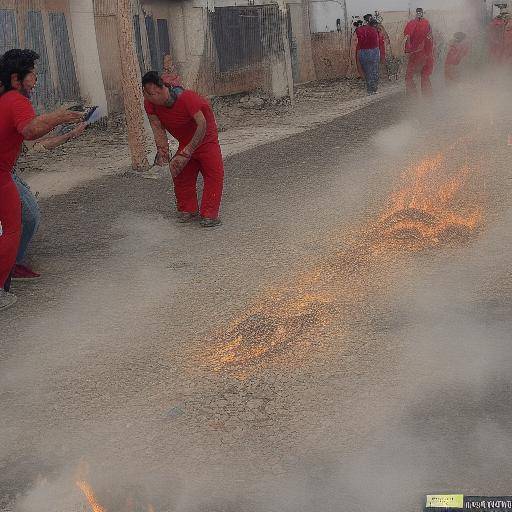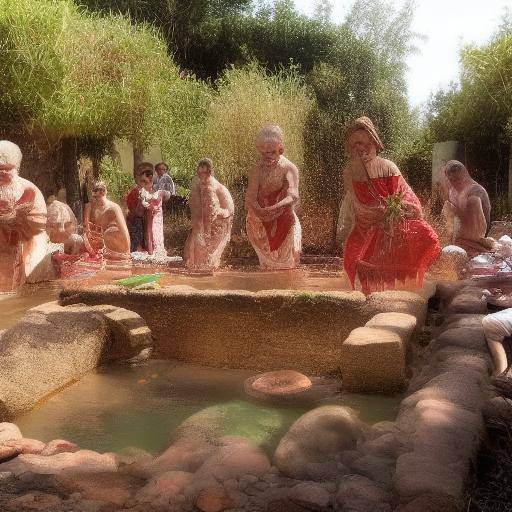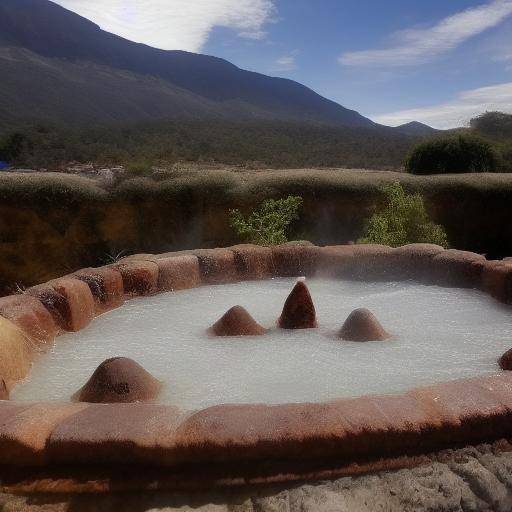
Introduction
Water is a fundamental element in life, with a transcendental importance in various aspects of culture and society. In this article, we will explore the connection between water and passage rites, analyzing its relevance in different cultures, as well as its impact on everyday life. Throughout these pages, we will discover how the water has been a witness and protagonist of the transition, transformation and celebration in various stages of human life.
History and Background
The symbolic and practical use of water in the rites of passage dates back to ancient times. In different cultures, water has been venerated as a symbol of purity, renewal and purification. From ancient baptism ceremonies in Christianity to the ablutions in Islam, water has played a crucial role in the transition from one state to another.
In civilizations such as Greek and Roman, water purification rituals were fundamental in the celebration of marriages, the transition to adulthood and mourning. Even today, indigenous communities around the world continue to maintain traditions that involve water as an essential part of their rites of passage.
Detailed Analysis
The importance of water in the rites of passage is manifested in various ways. From baptism in Christianity, which symbolizes the purification of original sin, to washing hands in certain Jewish ceremonies representing spiritual cleansing, water is presented as a symbol of renewal and change in multiple cultural contexts.
In addition to its symbolic burden, water plays a crucial role in the preparation and celebration of the rites of passage. In wedding planning, initiation rites or funerals, water is used in cleaning, ritual bathing and food preparation, highlighting its importance in the transition from one state to another.
Exhaustive examination
The application of water in the rites of passage varies significantly between cultures and religions. While in some societies it is used to bless newborns, in others it is used as a central element in the initiation ceremonies to adult life. This diversity of uses and meanings reflects the cultural wealth and symbolic depth associated with water in the different stages of life.
It is important to recognize that, while water is an essential element in many rites of passage, its access and availability are not equitable around the world. In many communities, water scarcity poses significant challenges in the celebration of these rituals, highlighting the importance of addressing the sustainable management of water resources to safeguard these long-term traditions.
Comparative analysis
The intersection between water, the rites of passage and its importance reveals surprising parallels between different cultures and religions. Despite the differences in the forms of celebration, the purification and transformative function of water in the rites of passage resonates universally, highlighting its timeless character and its unifying role in human experience.
By comparing and contrasting the use of water in initiation rituals, it is possible to glimpse the diversity of interpretations and meanings associated with this vital element. This comparison exercise invites us to reflect on the universality of the importance of water in the transition from one state to another, transcending cultural and ideological barriers.
Practical Tips and Accessible Recommendations
If you are involved in planning or participating in rivers of passage involving water, it is important to consider the quality, access and sustainable management of water in the context of such celebrations. This may involve the use of sustainable technologies for the cleaning and purification of water, as well as the promotion of practices that ensure their equitable and sustainable availability in all communities.
Here are some practical tips for conscious water management in the passage rites:
- Investigate traditional practices associated with water use in the rites of passage in your culture or community.
- Consider sustainable alternatives for water use at ceremonies, such as water recycling used for ritual cleaning.
- It promotes awareness of the importance of sustainable water management among participants and organizers of passing rites.
- Explore the possibility of incorporating symbolic elements that represent the meaning of water, even in the absence of the physical resource.
Conclusions and FAQs
Conclusions
Water, with its symbolic power and physical presence, plays a key role in transition and transformation in all cultures of the world. Its importance in the rites of passage emphasizes the importance of preserving not only the natural resource itself, but also the traditions that depend on its presence.
In a constantly changing world, it is essential to recognize and respect the various interpretations and meanings associated with water in the rites of passage. Their presence in these ceremonies reminds us of the deep connection between the human being and this vital element, as well as the need to consider their use in a conscious and sustainable way.
Frequently asked questions
1. How has the role of water evolved in the rites of passage over time?
The role of water in the rites of passage has varied significantly throughout history, adapting to cultural, religious and social changes. From its use as a symbol of purification to its practical function in the celebration of ceremonies, water has maintained its importance in the transition from one state to another over the centuries.
2. What is the impact of unequal access to water in the celebration of rites of passage?
Uneven access to water poses significant challenges in the celebration of passing rites in many communities around the world. Water scarcity can limit the realization of traditional ceremonies and compromise the integrity of such cultural practices. It is therefore crucial to address sustainable water management to preserve these long-term traditions.
3. How can we promote sustainable water management in step rites planning?
In order to promote sustainable water management in step-by-step rites planning, it is essential to consider sustainable water use alternatives at ceremonies, as well as to raise awareness of the importance of conservation among participants and organizers. The adoption of sustainable technologies and the promotion of responsible practices can contribute to ensuring the equitable and sustainable availability of water in these celebrations.
4. Why is water so significant in the rites of passage?
Water is significant in the rites of passage due to its deep symbolism of purification, renewal and transition. Its physical presence and symbolic power make it ideal to mark the transcendental moments in an individual's life, from birth to death. Water represents transformation and connection with the sacred in many cultures, making it fundamental in the rites of passage.
5. Are there significant differences in the use of water in the rites of passage between different cultures and religions?
Yes, there are significant differences in the use of water in the passage rites between different cultures and religions. Each tradition has its own rituals and meanings associated with water, which reflects cultural and spiritual diversity throughout the world. The variety in the use of water in the rites of passage highlights the cultural and symbolic richness of this fundamental element.
6. What is the role of water in passing rites today?
Today, water continues to play a crucial role in the celebration of rites of passage in various cultures and communities around the world. Its presence remains a symbol of renewal, purification and transformation in ceremonies that mark significant moments in people's lives, serving as a bridge between one state and another.
In short, water in the rites of passage is much more than a natural resource: it is a vital element that transcends the physical to acquire a profound spiritual, cultural and social meaning. Its importance underlines the need to preserve both the resource itself and the traditions that depend on its presence, in an attempt to honor cultural diversity and the undeniable connection between human beings and water.
With this deeper understanding of the importance of water in the rites of passage, we hope to have shed light on this fundamental theme in culture and society.
Concluding, it is crucial to recall that sustainable water management is essential both to preserve these traditions and to ensure a prosperous and equitable future for generations to come. In addressing these challenges with awareness and responsibility, we can honor the value of water in the rites of passage and ensure their meaningful presence in the lives of people around the world.







